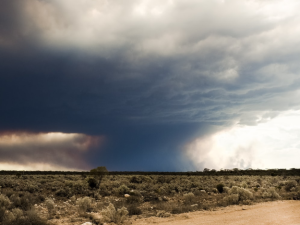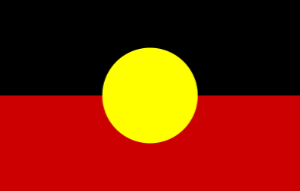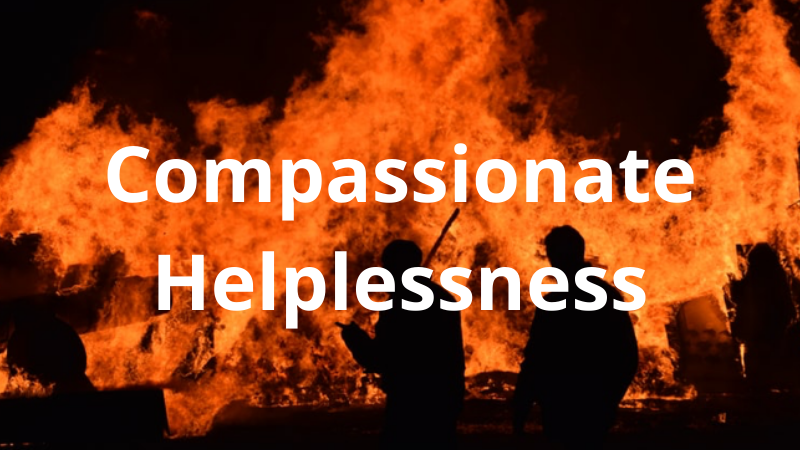Compassionate Helplessness in Times of Disaster
What a summer – and we still have several months of heat, humidity, and drought to endure. Then there are the fires – terrifying in their intensity, rendered chaotic and unpredictable by fierce winds, lightning strikes, embers, carelessly thrown cigarette butts, and the occasional intervention of pyromaniacs who seem to find tinder dry grass and undergrowth an irresistible invitation to create drama and destruction. Images that terrify most of us appear to create exhilaration in others.
 I imagine many folk are like me and feel a need to be informed about what is happening in our world – to our families, our neighbours, our friends, our fellow Australians, while at the same time finding news bulletins and images almost unbearably distressing. An overwhelming sense of helplessness tends to exaggerate our distress. Those directly affected have tasks to carry out – fight or flight responses that use some of the adrenalin pumped through their bodies as they battle to extinguish flames, create safety barriers, save family members, homes, animals and livelihoods.
I imagine many folk are like me and feel a need to be informed about what is happening in our world – to our families, our neighbours, our friends, our fellow Australians, while at the same time finding news bulletins and images almost unbearably distressing. An overwhelming sense of helplessness tends to exaggerate our distress. Those directly affected have tasks to carry out – fight or flight responses that use some of the adrenalin pumped through their bodies as they battle to extinguish flames, create safety barriers, save family members, homes, animals and livelihoods.
Those of us at some distance are likely to experience a range of reactions – relief that we are safe, probably guilt that we have been spared, this time anyway, and a desire to do something useful. We may be overwhelmed by waves of compassion and feel frozen into immobility, or, fuelled by adrenalin, try to find a useful role as rescuers.
 Sometimes we rush in prematurely, or contribute in ways that are of little value initially. We know that donations of food, clothing and household items have been so generous this bushfire season that it has become hard to store and distribute these items appropriately. For the moment anyway. In the long term, there will be many ways for all of us to contribute to rebuilding communities, and healing psychological and physical wounds.
Sometimes we rush in prematurely, or contribute in ways that are of little value initially. We know that donations of food, clothing and household items have been so generous this bushfire season that it has become hard to store and distribute these items appropriately. For the moment anyway. In the long term, there will be many ways for all of us to contribute to rebuilding communities, and healing psychological and physical wounds.
Counselling is one of those contributions that is of little value in the beginning – people need to survive first, to feel safe, to have basic needs met before they have receptor sites for sophisticated, less tangible interventions. Counsellors need to wait in the wings and stay around for the long haul – to wait until people have caught their breath and begun to process the devastating changes that have occurred in every aspect of their lives.

Practical help is needed first – the help provided by fire-fighters, paramedics, police, the army, doctors and nurses, and those who feed and tend to other basic needs of people on the front line. Those who have lost homes need somewhere safe to sleep, shower, and eat. A hug by the right person at the right time might be as much psychological help traumatised people can tolerate, initially. Acts of genuine kindness speak louder than words when any of us are feeling rather than thinking.
From a practical perspective, gifts of cash need to be readily accessible so people can buy food and pay immediate bills.
Later, help will be needed to clear charred buildings, trees and land, and to bury animals. Tradespeople will be in great demand to rebuild houses, schools, sheds, fences, and whatever else has been destroyed. We need some clear thinking souls to compile a list of helpful tasks, rank ordered in terms of immediate and later needs, and encourage those of us wanting to be helpful to wait our turn.
As potential helpers without an obvious role, we need to stay still for a little while, take a deep breath, and ask ourselves a few important questions. For example, ‘am I a front line person or someone who is better suited to waiting in the wings? Am I prepared to stay around for the long haul – to help the traumatised and wounded when the battle for survival has ended?’
Personally, I’m ‘a wing waiter’ – much better at dealing with the long haul than the immediate, physical crisis. What’s your answer to the same question?
I ask myself what skills I might have to offer. I know I’m a compassionate and competent counsellor, and a passionate advocate for those who don’t feel they have a strong enough voice or the right connections to help them achieve important outcomes. I have access to a network of people with a variety of skills, who are responsive to requests for help, and I’m prepared to ask for it on behalf of those in need. What skills do you have? And how might you use them? Who do you have access to? Who might respond to your requests for help?
And while we wait our turn, there are simple, effective ways of providing emotional support when those affected, and known to us, have access to phones – we can send regular, caring text messages that require no response.
We can contact organisations like the Red Cross, The Salvation Army, other charities, councils of affected communities, newspapers, and ask the question ‘what is the most helpful thing I can do right now? And what might be helpful in the long term?’
People who are skilled at sewing and knitting could make clothes and blankets that are likely to be more needed over the next two years than they are right now. Store them in your own home rather than overwhelming charities whose storage facilities are filled to overflowing. Later, contact those organisations or magazines that have wide circulation to let them know what you have ready and waiting, and how people might contact you. Make sure your contact details ensure your safety from the small percentage of the community who might misuse your generosity.
Gardeners could pot and nurture plants for later distribution. Children could begin a money box collection of gold coins to be given to needy families at Christmas time. Picnics and entertaining events could be planned for devastated communities for later in the year when distraction from distressing images and tasks might prove therapeutic.
Very occasionally, given by the right person at the right time, advice can be helpful. For example, if parents you know are concerned about the long term impact of trauma on their children, you may suggest they limit the number of times children see graphic, distressing images on TV. You could also suggest that they contact Cara House in Sydney (a trauma service for children, adults and families) or ‘A Friends’ Place’ for suggestions or counselling.

Individuals and work places could offer to pay for 6 counselling sessions for affected families, vouchers redeemable some time over the next two years.
A children’s grief service in New York – Hearts and Crafts – contacted ‘A Friends’ Place’ to express distress about their helplessness as they learn about the devastating effect of the Australian bush fires. They asked for suggestions about what they might do to offer support. We value their compassion and were able to provide a few suggestions that now have children and adults enthusiastically working on projects that will eventually find their way to Australia to let children here know that kids around the world care about them.
The possibilities for helpful acts are only as limited as our imaginations. Feeling helpless is empathic, but doesn’t mean we are useless. Remember the wartime saying ‘they also serve who only stand and wait’
Help
Help is always available – at ‘A Friend’s Place’ or by contacting our outreach service.
Dianne McKissock OAM
NCCG Outreach Support Service
Email support for dying and bereaved people and anyone involved in their care






